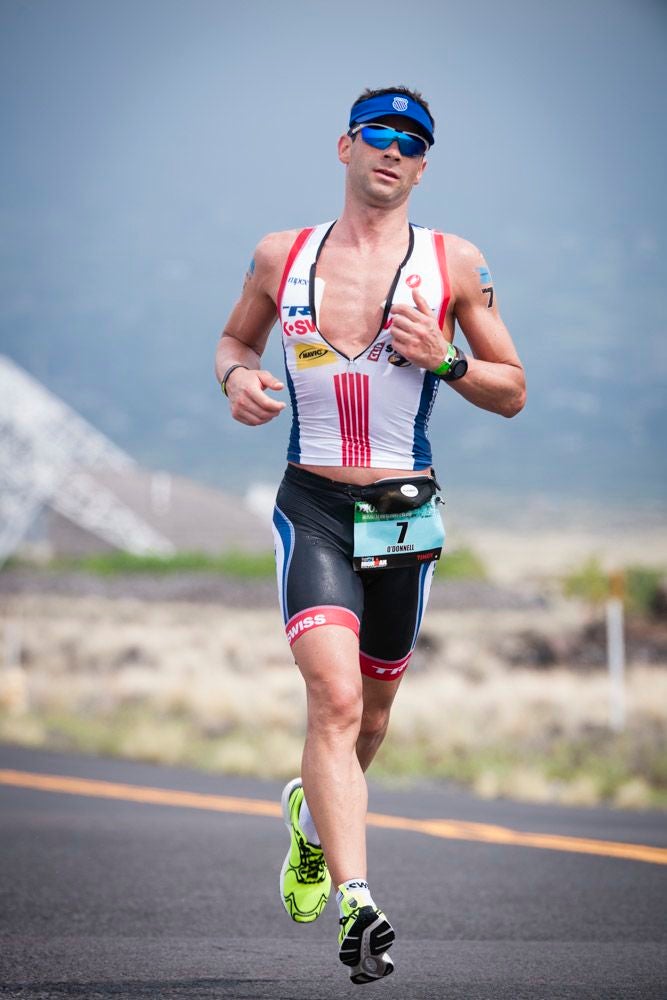3 Ways Mark Allen Has Changed Tim O’Donnell’s Training

O'Donnell finished fifth at the 2013 Ironman World Championship. Photo: John David Becker
Earlier this year, Tim O’Donnell announced he was switching coaches to work with six-time Ironman world champion Mark Allen. O’Donnell has steered clear of most race week media obligations—outside of the press conference and a Garmin 920XT watch launch for which he is the main spokesperson—and appeared calm and relaxed when we briefly caught up with him (that is, before Allen stepped in to command, “Alright, get off your feet.”). Here’s what O’Donnell said has changed about his training in his lead-up to Saturday’s race, where he hopes to improve upon his fifth place last year.
It’s heart-rate based. “Like you’re walking up hills if you’re going over your heart rate,” he says. “I never wore a heart rate strap until this year, I always went off pacing and power—which, for me, I’m the kind of guy who’s going to get the workout done no matter what, and a lot of times I might have been doing the workout if I was too tired.”
It’s more aerobic. “Before I was doing either quality or easy aerobic stuff. Now with Mark, it’s a lot of aerobic stuff—I call it ‘aerobic’ but it’s not easy. I’m working at 150–155 beats per minute on the bike, but I’m pushing over 300 watts. So it’s really conditioning me to be stronger in that higher-end aerobic zone where I’m still burning more fat and I’m more efficient and just making me just strong.”
It’s a new mental game. “[Mark’s about] not getting stressed out about stuff and being more relaxed. His thing is quieting the mind, so being able to put everything out of your mind and focusing on what you have to do. The simplicity, I guess. And connecting with nature and surroundings—I’m a Navy guy, who was an engineer, and Mark’s approach was very foreign to my background. I think partnering with somebody like that is huge—it balances you out. If I had someone coaching me just like me, it would be bad. He’s also put stuff into perspective beyond triathlon and beyond racing. What I do at this race doesn’t have to define me. I think once you get at peace with that in yourself, it’s a lot easier to go out there and race your best.”